
Leopold Zunz was the founder of academic Judaic Studies, the critical investigation of Jewish literature, hymnology and ritual. Zunz's historical investigations and contemporary writings had an important influence on contemporary Judaism.
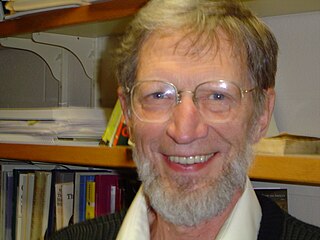
Alvin Carl Plantinga is an American analytic philosopher who works primarily in the fields of philosophy of religion, epistemology, and logic.
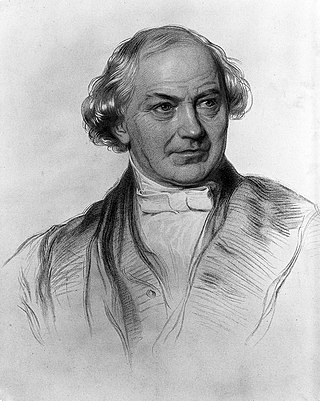
William Whewell was an English polymath, scientist, Anglican priest, philosopher, theologian, and historian of science. He was Master at Trinity College, Cambridge. In his time as a student there, he achieved distinction in both poetry and mathematics.

Thomas Metzinger is a German philosopher and Professor Emeritus of theoretical philosophy at the University of Mainz. His primary research areas include philosophy of mind, philosophy of neuroscience, and applied ethics, particularly focusing on neurotechnology, virtual reality, and artificial intelligence. He has argued in his book Being No One that the phenomenal self is a mental construct created by the brain. His 2024 book The Elephant and the Blind compiled extensive research on meditation.

Goethe University Frankfurt is a public research university located in Frankfurt am Main, Germany. It was founded in 1914 as a citizens' university, which means it was founded and funded by the wealthy and active liberal citizenry of Frankfurt. The original name in German was Universität Frankfurt am Main. In 1932, the university's name was extended in honour of one of the most famous native sons of Frankfurt, the poet, philosopher and writer/dramatist Johann Wolfgang von Goethe. The university currently has around 48,000 students, distributed across four major campuses within the city.
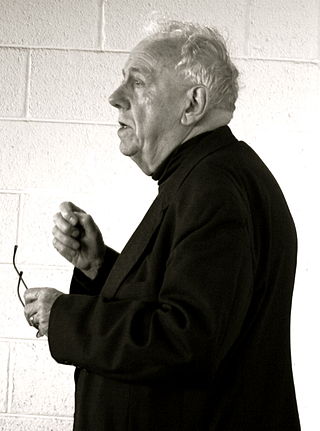
Alasdair Chalmers MacIntyre is a Scottish-American philosopher who has contributed to moral and political philosophy as well as history of philosophy and theology. MacIntyre's After Virtue (1981) is one of the most important works of Anglophone moral and political philosophy in the 20th century. He is senior research fellow at the Centre for Contemporary Aristotelian Studies in Ethics and Politics (CASEP) at London Metropolitan University, emeritus Professor of Philosophy at the University of Notre Dame, and permanent senior distinguished research fellow at the Notre Dame Center for Ethics and Culture. During his lengthy academic career, he also taught at Brandeis University, Duke University, Vanderbilt University, and Boston University.
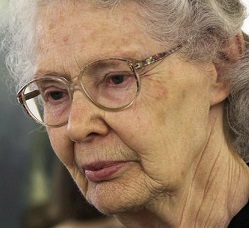
Mary Brenda HesseFBA was an English philosopher of science, latterly a professor in the subject at the University of Cambridge.
Dominik Perler is Professor of Philosophy at Humboldt-Universität zu Berlin, and co-director of the Institute for Advanced Studies in the Humanities Human Abilities.

Barry Stroud was a Canadian philosopher and professor at the University of California, Berkeley. Known especially for his work on philosophical skepticism, he wrote about David Hume, Ludwig Wittgenstein, the metaphysics of color, and many other topics.

Menachem Lorberbaum is an Israeli professor and the chair of the School of Philosophy at Tel Aviv University.
Christine Hayes is an American academic and scholar of Jewish studies, currently serving as the Sterling Professor of Religious Studies in Classical Judaica at Yale University, specializing in Talmudic and Midrashic studies and Classical Judaica.
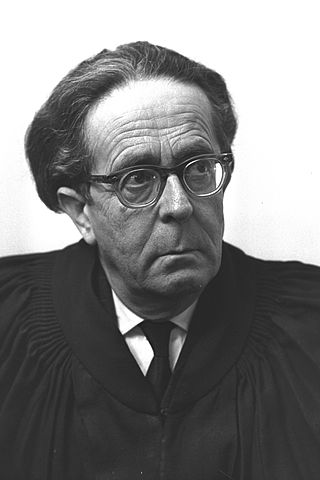
Moshe Zilberg (1900–1975) was a leading Israeli jurist.

Paul Walter Franks is the Robert F. and Patricia Ross Weis Professor of Philosophy and Judaic Studies at Yale University. He graduated with his PhD from Harvard University in 1993. Franks' dissertation, entitled "Kant and Hegel on the Esotericism of Philosophy", was supervised by Stanley Cavell and won the Emily and Charles Carrier Prize for a Dissertation in Moral Philosophy at Harvard University. He completed his B.A and M.A, in Philosophy, Politics and Economics at Balliol College, Oxford. Prior to this, Franks received his general education at the Royal Grammar School, Newcastle, and studied classical rabbinic texts at Gateshead Talmudical College.
Debra Nails is an American philosophy professor who taught at Michigan State University. Nails earned her M.A. in philosophy and classical Greek from Louisiana State University before going on to earn a Ph.D. in philosophy at the University of the Witwatersrand, Johannesburg in 1993. Previously, she taught in the Department of Classics, Philosophy, and Religion at Mary Washington College. Nails taught courses on the history of philosophy, continental rationalism, metaphysics, and modern philosophy.
Eleonore Stump is an American philosopher and the Robert J. Henle Professor of Philosophy at Saint Louis University, where she has taught since 1992.

Noah Jonathan Efron is a professor at Bar-Ilan University, where he was founding chair of the interdisciplinary program on Science, Technology, and Society.
Harold Fisch, also known as Aharon Harel-Fisch, was a British-Israeli author, literary critic, translator, and diplomat. He was a Professor of English and Comparative literature at Bar-Ilan University, of which he served as Rector from 1968 to 1971. He was awarded the Israel Prize for Literature in 2000.
Michela Massimi is an Italian and British philosopher of science, a professor of philosophy at the University of Edinburgh, and the president-elect of the Philosophy of Science Association. Her research has involved scientific perspectivism and perspectival realism, the Pauli exclusion principle, and the work of Immanuel Kant.
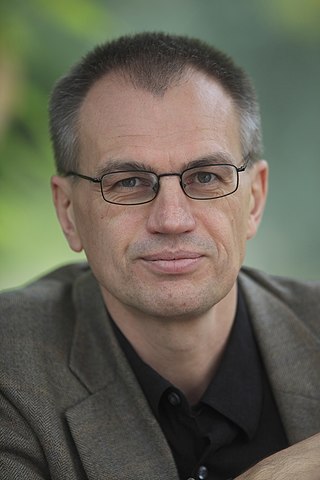
Dmitri Nikulin is a philosopher and Professor of Philosophy at The New School for Social Research in New York City, New York, US. He has been a visiting professor at the École pratique des hautes études, Paris and the École des hautes études en sciences sociales, Paris. He has been a Fellow at the Alexander von Humboldt Foundation in Tübingen, Heidelberg, and Bonn-Bad Godesberg, Germany, at the University of Notre Dame, Indiana, where he worked with Alvin Plantinga, and at the Forschungskolleg Humanwissenschaften in Bad Homburg, Germany.

J. H. Chajes is the Sir Isaac and Lady Edith Wolfson Professor of Jewish Thought in the Department of Jewish History at the University of Haifa. He is a Jewish cultural historian whose work has been devoted to the intersections of Kabbalah, magic, and science in the early modern period. In the last decade, he has become the leading scholar of visual Kabbalah, having founded The Ilanot Project and published the first major work on the previously unstudied genre of ilanot. He is the author of Between Worlds: Dybbuks, Exorcists, and Early Modern Judaism and The Kabbalistic Tree. In 2013, he was elected to the Executive Board of the World Union for Jewish Studies, where he serves as Division Chair for rabbinic literature, Jewish law, and Jewish thought.














